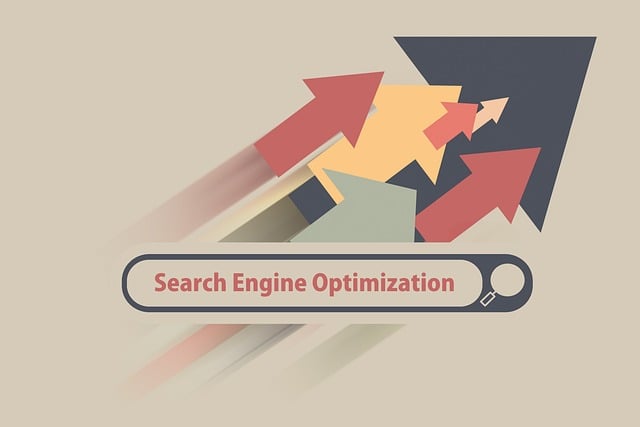To improve organic search rankings, focus on comprehensive keyword research using tools like Google Keyword Planner, SEMrush, and Ahrefs for relevant terms with high intent. Optimize on-page elements by naturally incorporating keywords in titles, headings, meta descriptions, and content while creating high-quality, engaging content. Build high-quality backlinks from reputable sources to signal search engines of your site's value. Enhance user experience with an intuitive environment, fast page load speeds, mobile responsiveness, and regular updates. Implement Technical SEO strategies through site audits, structured data markup, XML sitemaps, and server optimizations for efficient crawling. Utilize Local SEO on platforms like Google My Business to boost local search visibility. Regularly update content to maintain relevance and attract backlinks, driving higher traffic over time. Monitor performance with advanced analytics tools to track CTRs, average positions, bounce rates, and search engine behavior for data-driven optimization.
Looking to boost your website’s visibility? Improving organic search results is key to drawing targeted traffic and boosting your online presence. This comprehensive guide breaks down essential strategies for achieving top rankings. From understanding basic ranking factors to leveraging technical SEO, each step equips you to optimize your site effectively. Learn how to conduct thorough keyword research, enhance user experience, build high-quality backlinks, and regularly update content to stay ahead in the competitive digital landscape.
Understand the Basics of Organic Search Rankings

Organic search rankings are a critical aspect of online visibility, determining where your website appears in search engine results pages (SERPs). It’s essential to grasp the fundamentals of how these rankings are calculated. Search engines like Google use complex algorithms that consider numerous factors when evaluating websites. These include relevance, quality, authority, and user experience. The better your site aligns with these criteria, the higher it is likely to rank in organic search results.
To improve organic search rankings, start by conducting thorough keyword research to identify relevant terms your target audience uses during searches. Optimize your website’s content, metadata, and structure based on these keywords while ensuring a seamless user experience across all devices. Building high-quality backlinks from reputable sources is also key; this signals to search engines that your site offers valuable information worth sharing.
Conduct Comprehensive Keyword Research

Conducting comprehensive keyword research is a cornerstone in improving your site’s organic search rankings. It involves understanding what terms your target audience uses when searching for products, services, or information related to your business. Tools like Google Keyword Planner, SEMrush, and Ahrefs can help uncover long-tail keywords—phrases with lower competition but high search intent—that align with your content strategy. By identifying these valuable keywords, you can create more relevant and targeted content that satisfies user queries and boosts your site’s visibility in search engine results pages (SERPs).
This research should go beyond simply finding popular keywords. It’s crucial to analyze search volumes, competition levels, and user intent behind each keyword. Tools can provide insights into average monthly searches, estimated difficulty in ranking, and suggestions for related or semi-related terms. Incorporating these keywords naturally throughout your website content—in titles, headings, meta descriptions, and body text—can significantly enhance your SEO efforts. Effective keyword research ensures that your content is optimized for both search engines and your target audience.
Optimize On-Page Elements for Better Visibility

To improve organic search results and climb up the rankings, optimizing on-page elements is a crucial step. This involves enhancing various components within your website’s source code to make it more appealing to search engine algorithms. Start by conducting thorough keyword research to identify relevant terms your target audience is using. Incorporate these keywords naturally into your page titles, headings, meta descriptions, and content bodies. Search engines prioritize content that aligns with user intent, so ensuring your on-page elements accurately reflect the topic of your webpage will boost visibility.
Additionally, focus on creating high-quality, engaging content that provides value to readers. Optimizing images by adding alt tags and compressing file sizes can also improve page load speed, which is a factor search engines consider. Internal linking strategies should be implemented to guide users and search engine crawlers through your website’s relevant pages. By optimizing these on-page elements, you’re taking significant steps towards improving organic search rankings and increasing the chances of your website appearing higher in search results.
Build High-Quality Backlinks to Boost Credibility

To improve organic search results and elevate your website’s ranking, building high-quality backlinks is a strategic must. Backlinks act as votes of confidence from other websites, signaling to search engines that your content is valuable and trustworthy. When relevant, authoritative sites link to yours, it boosts your credibility and shows search algorithms that your site provides genuine value. This, in turn, can lead to improved organic search rankings as search engines prioritize delivering results that users find most reliable and relevant.
Focus on acquiring backlinks from reputable and related sources. This could mean guest blogging on industry-leading sites, creating shareable content that naturally attracts links, or collaborating with influencers in your niche. Each high-quality backlink contributes to a stronger link profile, which enhances your site’s authority and visibility in search results. Remember, the goal is not just to accumulate any backlinks but to earn them through quality content and genuine connections.
Enhance User Experience for Longer Session Duration

To improve organic search results and boost your website’s ranking, enhancing user experience is a key strategy. By creating an engaging and intuitive environment, you encourage visitors to spend more time on your site, which signals to search engines that your content is valuable and relevant. This longer session duration can significantly impact your search rankings as it’s a strong indicator of quality and user satisfaction.
Focus on simplifying navigation, optimizing page load speeds, and ensuring mobile responsiveness. High-quality content that addresses user queries comprehensively will keep visitors engaged. Regularly update your site with fresh, relevant information to maintain user interest and encourage repeat visits. These user experience optimizations not only improve your site’s performance for search engines but also enhance the overall visitor experience, fostering a positive association with your brand or business.
Utilize Technical SEO for Seamless Crawling and Indexing

To improve organic search results, it’s essential to employ Technical SEO strategies that ensure search engine crawlers can effortlessly access and index your website. Start by conducting a site audit to identify any technical issues like broken links, slow loading times, or mobile usability problems. These factors significantly impact your site’s crawlability and indexing, hindering its potential to achieve higher organic search rankings.
Addressing these issues involves optimizing critical elements such as implementing structured data markup for enhanced content understanding, ensuring XML sitemaps are up-to-date for better navigation, and improving server response times. By creating a seamless crawling process, you enable search engines like Google to efficiently scan and index your web pages, boosting your website’s visibility in organic search results.
Leverage Local SEO for Targeted Local Searches

Leveraging Local SEO is a powerful strategy to enhance your online visibility for targeted local searches, ultimately improving organic search rankings. By optimizing your business listings on platforms like Google My Business and Yelp, you ensure that your company appears at the top of local results when customers search for services or products in your area. This localized approach is crucial as it captures the attention of potential clients who are actively looking for businesses nearby.
Focusing on consistent NAP (Name, Address, Phone number) information across these listings and relevant online directories can significantly boost your credibility with both search engines and local customers. Additionally, engaging with your audience through reviews and responding to them shows active participation in the community, further strengthening your online presence and driving more targeted traffic to your website.
Regularly Update Content to Stay Relevant

Search engines prioritize fresh, relevant content when determining organic search rankings. Regularly updating your website with new and valuable information signals to algorithms that your site is an authoritative source worth recommending to users. This can significantly improve your site’s visibility in search results over time.
By consistently adding new content, you keep both search engine crawlers and human visitors engaged. Ensure the updates are high-quality and align with your target audience’s needs to foster a positive user experience. This not only boosts your website’s reputation but also encourages links from other sites, further enhancing your organic search rankings.
Monitor and Analyze Performance with Advanced Tools

To significantly improve organic search results and rankings, it’s essential to monitor and analyze performance using advanced tools. These tools provide valuable insights into user behavior, keyword effectiveness, and site performance, enabling data-driven decisions for optimization. By tracking key metrics such as click-through rates (CTRs), average position changes, and bounce rates, you can identify areas for improvement and fine-tune your SEO strategy accordingly.
Advanced analytics platforms offer detailed reports on search engine behavior, helping you understand which keywords drive the most relevant traffic and conversions. This data allows you to focus on high-value keywords that align with your target audience’s intent, thereby enhancing your site’s relevance and authority in the eyes of search engines. Leveraging these tools is crucial for continuously refining your content and technical SEO elements to secure better organic search rankings over time.
